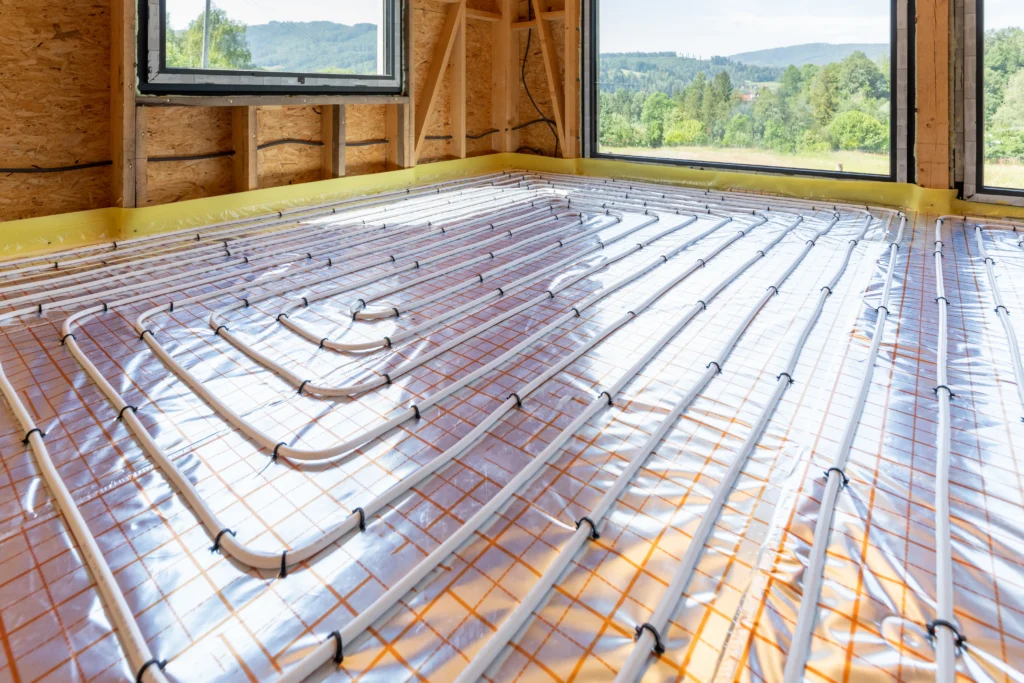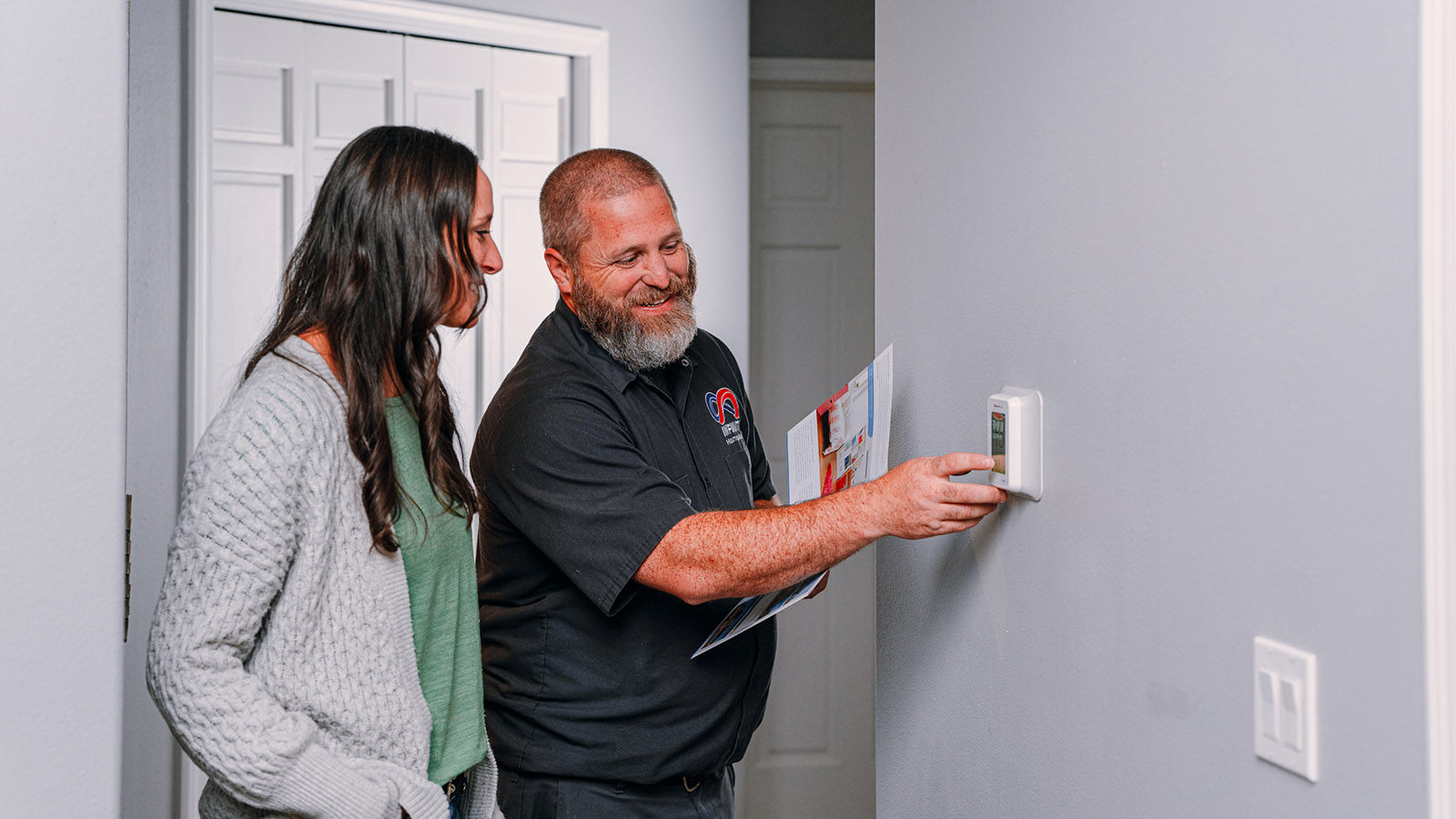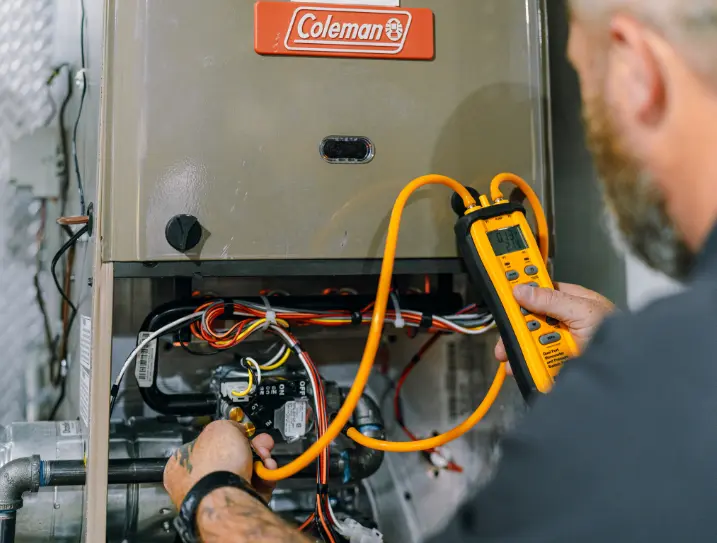Knowing how your home heating system works is key to keeping your space warm and your bills low. With options like furnaces, heat pumps, and boilers, each system has its own way of bringing heat to your home. Understanding these systems means you can choose the best one for your needs, use it efficiently, and take care of it so it lasts longer.
Understanding Home Heating
Knowing how your home heating system works is key to keeping your space warm and your bills low. With options like furnaces, heat pumps, and boilers, each system has its own way of bringing heat to your home. Understanding these systems means you can choose the best one for your needs, use it efficiently, and take care of it so it lasts longer. This guide from Infinity Heating & Air will help you get familiar with the basics, so you can make informed decisions and keep your home cozy all winter.
How Does My Home Heating System Work?
Understanding how your home heating system keeps you warm is simpler than you might think. Essentially, these systems work by moving heat from one place to another. For most homes, this means taking outside air, water, or underground heat and converting it into warm air for your rooms, or heating water that circulates through pipes to radiators or underfloor heating systems. Your heating system’s job is to make sure warm air or water gets to where it’s needed to keep you comfortable.
The Key Components of a Home Heating System
The Three Major Components
Every home heating system has three main parts working together to keep you warm. First, the heat source heats air or water. This could be a furnace burning gas or an electric heat pump. Then, the heat distribution system takes this warmth and spreads it throughout your home, through ducts or pipes. And finally, the thermostat acts as the system’s brain, telling the heat when to turn on and reach the right temperature.
The Thermostat’s Role
Think of the thermostat as the brain of your heating system. It’s the main control that lets you set the indoor temperature to what feels comfortable. Using sensors, it checks the room’s temperature and turns the heating system on or off to keep the air just right. Modern thermostats can even learn your schedule and adjust the temperature automatically, making your home more comfortable and helping to save on energy bills.

Popular Types of Home Heating Systems
There are several ways to keep your house warm, and each method has its advantages and disadvantages.
Furnaces
Furnaces heat air and push it through the house using ducts. They are efficient and quick at heating up a space. However, they can circulate allergens and require ductwork, which can be costly to install and maintain.
Boilers
Boilers heat water, sending steam or hot water through pipes to radiators. This method heats rooms evenly and comfortably. On the downside, boilers can be slow to heat up and may need separate cooling systems.
Heat Pumps
Heat pumps are unique because they use a small amount of energy to move heat from one location to another. In the winter, they extract heat from the outside air or ground to warm your home. In the summer, they do the opposite, removing heat from your house to cool it down. This ability to both heat and cool makes heat pumps a versatile and energy-efficient option compared to traditional air conditioners, which can only cool your home. Their drawbacks are that the initial installation cost can be high, and their efficiency drops in very cold climates.
Radiant Heat
Radiant heating systems use panels in walls or floors to directly heat a space. They offer even, comfortable warmth without moving air, making them great for people with allergies. However, they can be expensive to install, especially if retrofitting a house.

Alternative Systems
Alternative heating options include solar panels and geothermal heating. These systems are sustainable and can significantly reduce energy costs over time, but they often come with high upfront costs and may require specific conditions to be most effective.
“Choosing the right heating system for your home is crucial for both comfort and efficiency. Consider the size of your space, your climate, and your energy efficiency goals when selecting a system.”
Selecting the Right Heating System
Picking the right heating system means taking into account your local weather, the size of your space, and how much you care about saving energy. If you live in a place that gets quite cold, you might want a system that’s great at keeping you warm even when it’s freezing outside. For big houses, you need a powerful system that can heat up all that space efficiently. And if lowering your energy bills and helping the environment are important to you, look for a system that uses less energy to do its job. Remember, what works for a small apartment in a mild climate might not cut it for a large home in a place with harsh winters. Consider all of these points carefully to find a heating system that fits your needs perfectly.
Heating System Efficiency and Savings
Improving Efficiency
Making your home’s heating system more efficient can save money and keep you warmer. Start with regular maintenance like checking and replacing filters. Use programmable thermostats to control the temperature better. When you set it to lower the heat while you’re out, you save energy and money.
Energy-Efficient Upgrades
Thinking about getting a new heating system? Look for high-efficiency models. They use less energy to run, which is good for your wallet and the planet. Consider adding solar panels too. They can power your heating system, cutting down on electricity or gas use. Upgrading your system and adding renewable energy sources are smart moves for a more comfortable and sustainable home.
Maintenance for Optimal Performance
Keeping your heating system running smoothly isn’t hard, but it does require regular attention. Each type of system, from furnaces to heat pumps, has its own checklist. For instance, changing your furnace’s air filter every few months keeps the air in your home cleaner and prevents your system from overworking. If you have a heat pump, keeping the outdoor unit clear of leaves and debris allows it to operate more efficiently. Boilers need a check-up to make sure the water level and pressure are correct. No matter the system, an annual inspection by a professional can catch any issues before they become big problems. Simple steps like these can make your heating system last longer and perform better, keeping your home cozy and your energy bills down.
Troubleshooting Common Issues
Before calling for help with your heating system, try a few things. First, make sure your thermostat is set to “heat” and the temperature is higher than your home’s current temp. Sometimes, it’s as simple as flipping a switch. Next, check your air filters. A dirty filter can block air flow and make your system work harder. If they’re clogged, swap them out for new ones. Also, take a look at your circuit breaker. If it’s tripped, your system won’t work. Flip it back on if needed. And don’t forget to check your vents. If furniture or curtains block them, your system can’t circulate air properly.
If your system is still not heating well, or if it’s making strange noises, it’s time to call in the pros. Issues like these can mean something more serious is going on. A professional like Infinity Heating & Air can find and fix the problem safely. Remember, trying to fix complicated problems on your own can be dangerous and might cause more damage.
Safety Precautions
Paying attention to your heating system to keep your home safe. One key step is installing carbon monoxide detectors near sleeping areas and on every level of your home. Carbon monoxide is a colorless, odorless gas that heating systems can leak if they’re not working right. These detectors can save lives by alerting you to the gas before it’s a danger.

Make sure you’re using your heating system the way it’s supposed to be used. Don’t try to fix it yourself if something seems off. Always call a professional. Remember to keep anything that can burn away from your furnace, boiler, or any other heat source. This includes things like boxes, paper, clothing, and curtains.
Check your system before the cold season starts to make sure everything is in working order. This can help avoid problems when you need heat the most. Stay warm and safe by keeping these tips in mind.
Closing Thoughts
Understanding your home heating system will help you keep your home warm and your bills low. Learn how your system works, from the heat source to the thermostat. Regular checks and quick fixes can keep things running smoothly. But remember, for big issues or advice on saving energy, professionals can help a lot. Staying informed and proactive can make a big difference in your comfort and costs.
About Infinity Heating & Air
When you choose Infinity Heating & Air for your heating needs, you get more than just a service provider. Our team brings deep expertise and a commitment to making your home comfortable and healthy, with customized solutions that fit your space. Whether it’s installing a new system or maintaining an existing one, we make sure it’s done right. Happy customers are our top priority. We’re reliable, always there when you need us, and dedicated to bringing endless comfort to your home, season after season.





